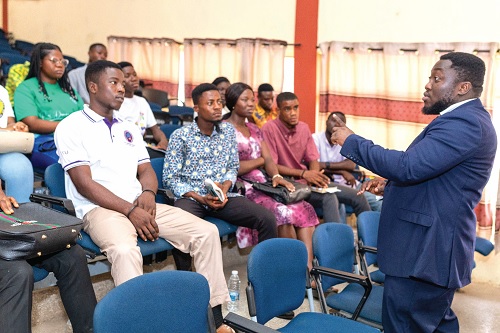
Role of students in policy drafting, implementation
The education system is at a turning point; while progress has been made, challenges remain.
To unlock the full potential of the education system and equip students with the skills they need to succeed in the future, it is essential to harness the power of "student voices" and transform them from "passive recipients" into "actors of change".
As active participants in their education, students are not only the recipients of it, but they also bring to bear important insights that are frequently missed, with their distinct viewpoints on classroom dynamics, curricular relevance and infrastructural restrictions.
Engaging people in policy talks encourages them to feel like change agents within the system and creates an ownership culture.
Benefits of student involvement:
• Student input guarantees that policies address actual needs and concerns, which leads to improved policy relevance. Higher-quality, long-lasting solutions result from this.
• Improved execution: Pupils who are engaged with the policy are inclined to implementation, fostering a collaborative and participatory approach.
• Building critical thinking skills: Students who participate in policy conversations acquire communication, problem-solving, and critical thinking abilities that will be useful in their future employment and civic engagement.
• Encouraging democratic values: Encouraging students to participate in decision-making within the educational system cultivates a feeling of democracy and ownership, helping to prepare them for active citizenship.
Several models can be implemented:
• Student advisory committees: Establish representative student bodies at school, district and national levels to provide regular feedback and input on policies.
• Policy simulation exercises: Facilitate mock policy-making sessions where students experience the challenges and nuances of decision-making.
• Youth parliaments: Organise platforms for students to debate and vote on proposed policies, fostering critical engagement and public speaking skills.
• Utilising technology: Leverage online platforms and surveys to gather student feedback on a wider scale, ensuring diverse voices are heard.
Challenges
Concerns about the maturity or contribution potential of students are legitimate.
On the other hand, their opinions can be quite important, with the right direction and help.
Meaningful participation can be ensured through the implementation of mentorship efforts, training sessions and pilot programmes.
Conclusion:
Including students in the creation and application of policies is a calculated future investment, not merely a symbolic gesture.
By giving young people the tools and agency to create a better education system that meets their needs and gets them ready to succeed in a world that is always changing, we are empowering young minds.
We must not undervalue their abilities.
Together, let's unleash the changemakers within them and create a more promising future for Ghanaian education.
Call to Action:
We urge policymakers, educators and students to embrace this transformative approach.
Let's work together to create a Ghanaian education system where every voice is heard and every student is empowered to shape their own future.
Share your thoughts! Do you agree that students should play a more active role in shaping their education?
How can we overcome challenges and make this a reality?
Let's continue the conversation!
The writer is the Education Programme Officer,
Ghana Commission for UNESCO
